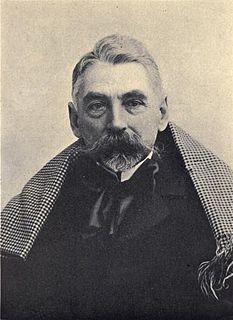A Quote by Soren Kierkegaard
A poet is an unhappy creature whose heart is tortured by deepest suffering but whose lips are so formed that when his sighs and cries stream out over them, their sound beomes like the sound of beautiful music . . . . And men flock about the poet saying, Sing for us soon again; that is to say, may new sufferings torture your soul, and may your lips continue to be formed as before.
Related Quotes
What is a poet? An unhappy man who hides deep anguish in his heart, but whose lips are so formed that when the sigh and cry pass through them, it sounds like lovely music.... And people flock around the poet and say: 'Sing again soon' - that is, 'May new sufferings torment your soul but your lips be fashioned as before, for the cry would only frighten us, but the music, that is blissful.
it may not always be so; and i say that if your lips, which i have loved, should touch another's, and your dear strong fingers clutch his heart, as mine in time not far away; if on another's face your sweet hair lay in such a silence as i know,or such great writhing words as, uttering overmuch, stand helplessly before the spirit at bay; if this should be, i say if this should be- you of my heart, send me a little word; that i may go unto him, and take his hands, saying, Accept all happiness from me. Then shall i turn my face,and hear one bird sing terribly afar in the lost lands.
While the poet entertains he continues to search for eternal truths, for the essence of being. In his own fashion he tries to solve the riddle of time and change, to find an answer to suffering, to reveal love in the very abyss of cruelty and injustice. Strange as these words may sound I often play with the idea that when all the social theories collapse and wars and revolutions leave humanity in utter gloom, the poet--whom Plato banned from his Republic--may rise up to save us all.
There's a reason why she left them, Lauren," he says. His voice is deep, and it rumbles. "What's your name?" "Um..." I don't know why I hesitate. But "Beatrice" just doesn't sound right anymore. "Think about it," he says, a faint smile curling his lips. " You don't get to pick again." A new place, a new name. I can be remade here. "Tris," I say firmly.
If an enthusiastic, ardent, and ambitious man marry a wife on whose name there is a stain, which, though it originate in no fault of hers, may be visited by cold and sordid people upon her, and upon his children also: and, in exact proportion to his success in the world, be cast in his teeth, and made the subject of sneers against him: he may, no matter how generous and good his nature, one day repent of the connection he formed in early life; and she may have the pain and torture of knowing that he does so.
Think of the sound you make when you let go after holding your breath for a very, very long time. Think of the gladdest sound you know: the sound of dawn on the first day of spring break, the sound of a bottle of Coke opening, the sound of a crowd cheering in your ears because you're coming down to the last part of a race--and you're ahead. Think of the sound of water over stones in a cold stream, and the sound of wind through green trees on a late May afternoon in Central Park. Think of the sound of a bus coming into the station carrying someone you love. Then put all those together.
A poet is wounded into speech, and he examines these wounds, meticulously, to discover how to heal them. The bad poet harangues at the pain and yowls at the weapons that lacerate him; the great poet explores the inflamed lips of ruined flesh with ice-caked fingers, glittering and precise; but ultimately his poem is the echoing, dual voice reporting the damages.







































